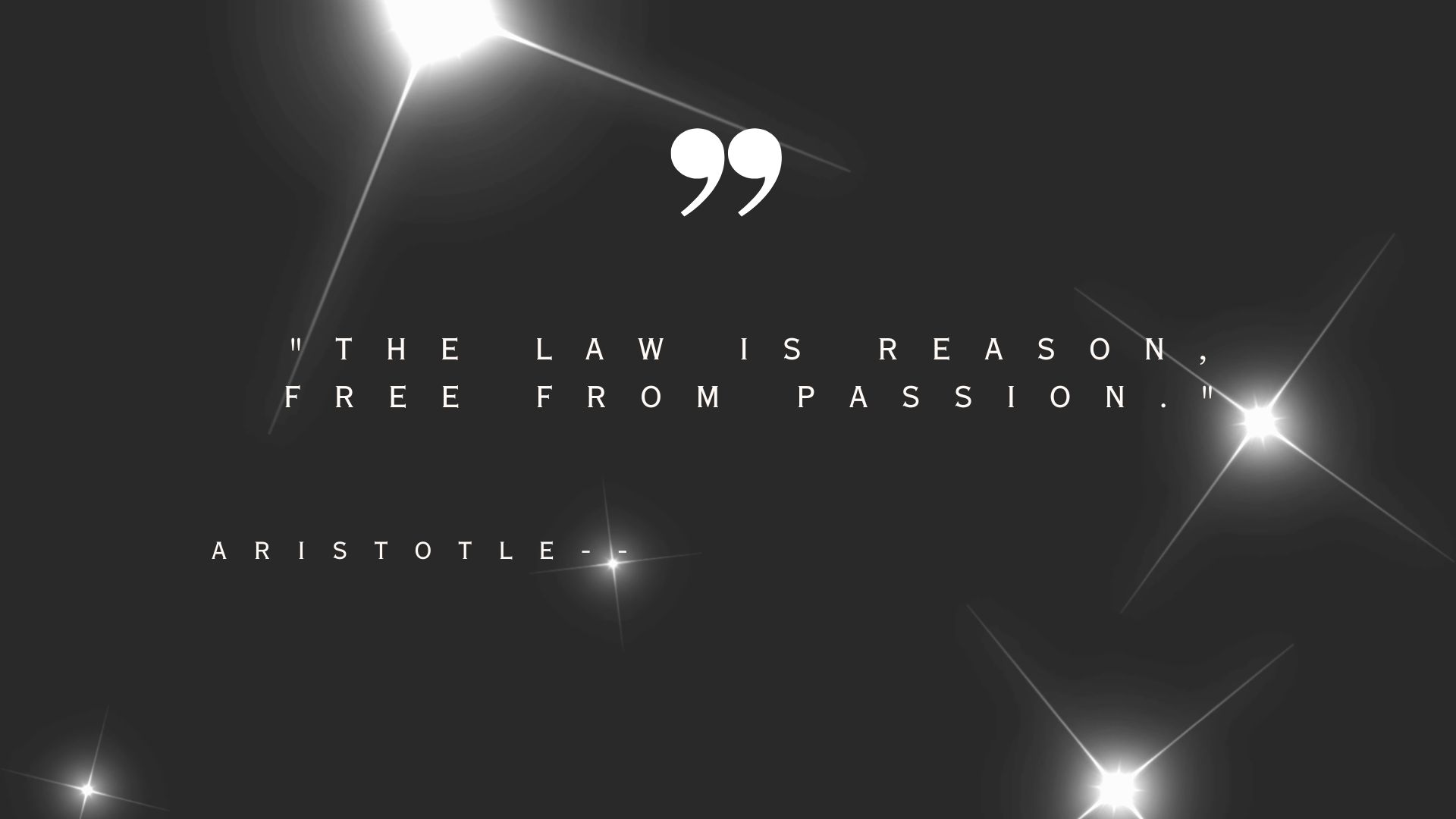“The law is reason, free from passion.”
–Aristotle
Aristotle, the ancient Greek philosopher, is well-known for his profound insights into various fields, including ethics, politics, and law. One of his notable quotes is, “The law is reason, free from passion.” This quote delves into the essence of law and its relationship with rationality and emotional detachment. In this explanation, we will explore the meaning and significance of this statement through several subheadings.
- The Essence of Law: The first subheading aims to comprehend the essence of law according to Aristotle. He emphasizes that law is not a mere set of rules but rather a manifestation of reason and rationality. By defining law as a product of reason, he highlights its role as a tool for promoting order, justice, and fairness within society.
- Reason as the Foundation of Law: Under this subheading, we delve deeper into the idea that law is founded on reason. Aristotle believed that laws should be based on logical and objective principles rather than emotional or impulsive considerations. When laws are grounded in reason, they have a greater chance of being just and impartial, as they are guided by thoughtful reflection and critical thinking.
- Freedom from Passion: In this section, the focus is on the phrase “free from passion.” Aristotle suggests that law should not be swayed by emotions, biases, or personal interests. Instead, it should be developed and implemented with a clear mind, devoid of passion. This detachment from emotion ensures that laws are equitable and applicable to all members of society, regardless of individual circumstances or feelings.
- Impartiality and Objectivity: Aristotle’s quote also underscores the importance of impartiality and objectivity in the legal system. When the law is devoid of passion, it can treat all individuals equally, ensuring a fair and just application of justice. This subheading delves into the significance of these qualities and how they contribute to the overall legitimacy of the legal framework.
- The Role of Wisdom and Deliberation: Another aspect to consider is the role of wisdom and deliberation in creating just laws. Reasoning and rationality go hand in hand with wisdom, as the law must be crafted with careful thought and consideration of potential consequences. Under this subheading, we explore how Aristotle viewed the connection between wisdom and the formulation of laws.
Conclusion:
Aristotle’s quote, “The law is reason, free from passion,” encapsulates the ideal characteristics of a just and equitable legal system. By emphasizing the importance of reason, objectivity, and freedom from passion, Aristotle highlights the principles that should guide the creation and implementation of laws. This profound statement continues to resonate in contemporary discussions about the nature and purpose of law in society.




